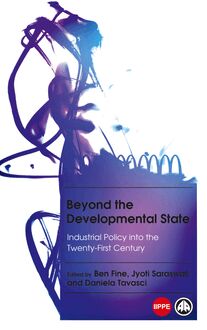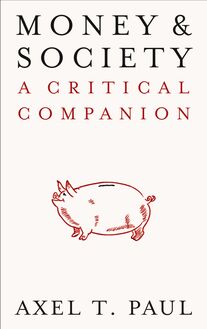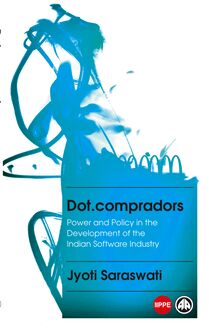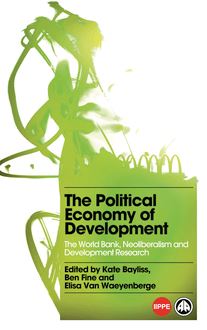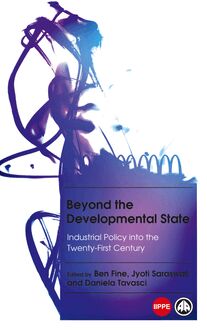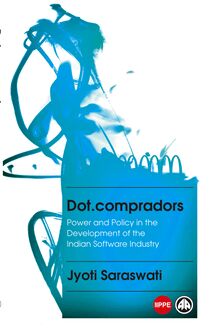-
 Univers
Univers
-
 Ebooks
Ebooks
-
 Livres audio
Livres audio
-
 Presse
Presse
-
 Podcasts
Podcasts
-
 BD
BD
-
 Documents
Documents
-
- Cours
- Révisions
- Ressources pédagogiques
- Sciences de l’éducation
- Manuels scolaires
- Langues
- Travaux de classe
- Annales de BEP
- Etudes supérieures
- Maternelle et primaire
- Fiches de lecture
- Orientation scolaire
- Méthodologie
- Corrigés de devoir
- Annales d’examens et concours
- Annales du bac
- Annales du brevet
- Rapports de stage
La lecture à portée de main
Vous pourrez modifier la taille du texte de cet ouvrage
Découvre YouScribe en t'inscrivant gratuitement
Je m'inscrisDécouvre YouScribe en t'inscrivant gratuitement
Je m'inscrisEn savoir plus
Vous pourrez modifier la taille du texte de cet ouvrage
En savoir plus

Description
Macroeconomics is your guide to how economics shape how the world functions today. But too often our understanding is based on orthodox, dogmatic analysis. This distinctive book draws upon years of critical questioning and teaching and exposes how macroeconomic theory has evolved from its origins to its current impoverished and extreme state.
Moving from the Keynesian Revolution to the Monetarist Counter-Revolution, through to New Classical Economics and New Consensus Macroeconomics, the authors both elaborate and question the methods and content of macroeconomic theory at a level appropriate for both undergraduate and postgraduate studies.
Macroeconomics provides a unique alternative to the multitude of standard textbooks by locating macroeconomic theory in its own history. It will be perfect for those studying macroeconomics, as well as for those looking for a new way to understand our increasingly complicated economic system.
It is accompanied by a counterpart Microeconomics: A Critical Companion.
List of Boxes
List of Diagrams
List of Abbreviations
Preface, Preliminaries and Acknowledgements
1. Macroeconomy versus Macroeconomics?
2. Accelerator-Multiplier: Stabbing the Knife-Edge in the Back?
3. Classical Dichotomies
4. Growth Theories: Old, New or More of the Same?
5. The Keynesian Revolutions
6. Post-Keynesian Dilemmas
7. Keynesian Revolution: What Keynes, What Revolution?
8. From Monetarist Counter-Revolution to Fundamentalism
9. Forging the Consensus: Monetary Policy and Real Business Cycle Theory
10. From New Classical Fundamentalism to New Nonsensus Macroeconomics
11. International Macro?
12. The Enigmas of Overshooting
13. Whither Macroeconomics?
References
Index
Sujets
Informations
| Publié par | Pluto Press |
| Date de parution | 20 avril 2016 |
| Nombre de lectures | 0 |
| EAN13 | 9781783718078 |
| Langue | English |
Informations légales : prix de location à la page 0,1350€. Cette information est donnée uniquement à titre indicatif conformément à la législation en vigueur.
Extrait
Macroeconomics
Political Economy and Development
Published in association with the International Initiative for Promoting Political Economy (IIPPE)
Edited by Ben Fine (SOAS, University of London) Dimitris Milonakis (University of Crete)
Political economy and the theory of economic and social development have long been fellow travellers, sharing an interdisciplinary and multidimensional character. Over the last 50 years, mainstream economics has become totally formalistic, attaching itself to increasingly narrow methods and techniques at the expense of other approaches. Despite this narrowness, neoclassical economics has expanded its domain of application to other social sciences, but has shown itself incapable of addressing social phenomena and coming to terms with current developments in the world economy.
With world financial crises no longer a distant memory, and neoliberal scholarship and postmodernism in retreat, prospects for political economy have strengthened. It allows constructive liaison between the dismal and other social sciences and rich potential in charting and explaining combined and uneven development.
The objective of this series is to support the revival and renewal of political economy, both in itself and in dialogue with other social sciences. Drawing on rich traditions, we invite contributions that constructively engage with heterodox economics, critically assess mainstream economics, address contemporary developments and offer alternative policy prescriptions.
Also available
Theories of Social Capital: Researchers Behaving Badly Ben Fine
The Political Economy of Development: The World Bank, Neoliberalism and Development Research Edited by Kate Bayliss, Ben Fine and Elisa Van Waeyenberge
Dot.compradors: Crisis and Corruption in the Indian Software Industry Jyoti Saraswati
Beyond the Developmental State: Industrial Policy into the Twenty-First Century Edited by Ben Fine, Jyoti Saraswati and Daniela Tavasci
Microeconomics: A Critical Companion Ben Fine
Macroeconomics
A Critical Companion
Ben Fine and Ourania Dimakou
First published 2016 by Pluto Press 345 Archway Road, London N6 5AA
www.plutobooks.com
Copyright © Ben Fine and Ourania Dimakou 2016
The right of Ben Fine and Ourania Dimakou to be identified as the authors of this work has been asserted by them in accordance with the Copyright, Designs and Patents Act 1988.
British Library Cataloguing in Publication Data A catalogue record for this book is available from the British Library
ISBN 978 0 7453 3687 9 Hardback ISBN 978 0 7453 3682 4 Paperback ISBN 978 1 7837 1806 1 PDF eBook ISBN 978 1 7837 1808 5 Kindle eBook ISBN 978 1 7837 1807 8 EPUB eBook
This book is printed on paper suitable for recycling and made from fully managed and sustained forest sources. Logging, pulping and manufacturing processes are expected to conform to the environmental standards of the country of origin.
Typeset by Stanford DTP Services, Northampton, England
Simultaneously printed in the European Union and United States of America
Contents
List of Boxes
List of Diagrams
List of Abbreviations
Preface, Preliminaries and Acknowledgements
1 Macroeconomy versus Macroeconomics?
1.1 Overview
1.2 The Short-Run and Long-Run Syndrome and Beyond
1.3 From What to How
1.4 Further Thoughts and Readings
2 Accelerator-Multiplier: Stabbing the Knife-Edge in the Back?
2.1 Overview
2.2 The Model
2.3 The Greater Realism of Eliminating Instability?
2.4 Further Thoughts and Readings
3 Classical Dichotomies
3.1 Overview
3.2 Dissecting the Classical Dichotomy
3.3 The Short- and Long-Run and Micro and Macro Dichotomies
3.4 Further Thoughts and Readings
4 Growth Theories: Old, New or More of the Same?
4.1 Overview
4.2 Old Growth Theory
4.3 New Growth Theory for Old?
4.4 Growth Econometrics
4.5 Further Thoughts and Readings
5 The Keynesian Revolutions
5.1 Overview
5.2 IS/LM as Neoclassical Synthesis
5.3 Reappraising or Reducing Keynes?
5.4 Further Thoughts and Readings
6 Post-Keynesian Dilemmas
6.1 Overview
6.2 Post-Keynesianisms?
6.3 Kaldor–Pasinetti Savings
6.4 Post-Keynesianism as Mainstream?
6.5 Further Thoughts and Readings
7 Keynesian Revolution: What Keynes, What Revolution?
7.1 Overview
7.2 The Revolution Portrayed or Betrayed?
7.3 Further Thoughts and Readings
8 From Monetarist Counter-Revolution to Fundamentalism
8.1 Overview
8.2 From Vertical Phillips Curve ...
8.3 ... to New Classical Economics
8.4 From the Not so Sublime to the Even More Ridiculous
8.5 Further Thoughts and Readings
9 Forging the Consensus: Monetary Policy and Real Business Cycle Theory
9.1 Overview
9.2 Monetary Policy under the NCE
9.3 Real Business Cycle Theory
9.4 Further Thoughts and Readings
Appendix A: Solution and Calibration of a DSGE Model
10 From New Classical Fundamentalism to New Nonsensus Macroeconomics
10.1 Overview
10.2 Consensus is Borne ...
10.3 ... and Shattered?
10.4 Further Thoughts and Readings
Appendix B: Surveying the Fundamentals in the Three-Equation NCM
11 International Macro?
11.1 Overview
11.2 Monetarism and Keynesianism Go International
11.3 Phase Diagrams and Stability Analysis
11.4 Further Thoughts and Readings
12 The Enigmas of Overshooting
12.1 Overview
12.2 Inflexible Output and Overshooting
12.3 Overshooting with Keynesian Features
12.4 Further Thoughts and Readings
Appendix C: Does the Dornbusch Overshooting Model Have Rational Expectations?
13 Whither Macroeconomics?
13.1 Overview
13.2 Further Thoughts and Readings
References
Index
List of Boxes
1.1 Efficient market hypotheses
2.1 Adaptive expectations
2.2 Difference equations
2.3 Difference and differential equations
5.1 Ricardian equivalence theorem
8.1 Adaptive expectations are behavioural and non-theoretical: the Koyck transformation
8.2 From adaptive through rational expectations to econometrics
10.1 Models typology: how many new Keynesians are there?
List of Diagrams
4.1 Steady-state balanced growth for the Solow–Swan model
4.2 Changes in the steady-state balanced growth path from saving ratio increases
4.3 Differences in growth paths and adjustments to growth paths
5.1 IS/LM curves
5.2 Keynesian liquidity trappings
5.3 Household pseudo-indifference curves
5.4 Households constrained on goods
5.5 Households constrained on labour
5.6 The constrained household
5.7 The constrained firm
5.8 Quantity-constrained regimes
6.1 Labour supply and demand
6.2 Monopoly supply of goods
6.3 Monopoly supply of labour
6.4 Monopolies of goods and labour
8.1 Phillips curve
8.2 Friedman’s vertical Phillips curve
8.3 Adjustment to money supply increase for adaptive and rational expectations
11.1 The J-curve
11.2 BP curve
11.3 IS/LM/BP curves
11.4 Trade and employment equilibrium
11.5 Labour market adjustment
11.6 Trade balance adjustment
11.7 Phase diagram and stability
11.8 Adjusted and enhanced stability
12.1 Phase diagram
12.2 Adjustment
12.3 Overshooting
12.4 Keynesian adjustment
12.5 Keynesian overshooting?
List of Abbreviations
CD
Classical Dichotomy
DSGE
dynamic stochastic general equilibrium
EMH
Efficient Market Hypothesis
HP
Homogeneity Postulate
IRS
increasing returns to scale
MEC
marginal efficiency of capital
MMEC
monetary marginal efficiency of capital
NCE
New Classical Economics
NCM
New Consensus Macroeconomics
NGT
new growth theory
OGT
old growth theory
PMEC
physical marginal efficiency of capital
RBC
Real Business Cycle
RBE
real balance effects
RWE
real wealth effects
SL
Say’s Law
SSBG
steady-state balanced growth
TA 2
technical apparatus and architecture
TFP
total factor productivity
WL
Walras’ Law
Preface, Preliminaries and Acknowledgements
One of the two authors of this book has taught macroeconomics at graduate level for more than 40 years, the other is relatively new to the game, although recently trained. Such a clash of experiences has been fruitful in deciding what to include in this text and how to include it. We have been presented with a number of problems in light of our objectives. First, our readership is liable to be mixed in abilities and knowledge. In general, we expect most of the basics from an undergraduate degree in economics. Even so, we have occasionally reviewed elementary material, partly because it is often improperly understood, and partly because it can look different when presented within a critical and more rounded perspective. For this and other reasons, we have provided a number of boxes dedicated to particular topics to supplement the text. Some are technical, some are not.
Second, economics is (increasingly) technically demanding in terms of mathematical requirements. It is necessary to deploy and command technical material, both as skill acquisition in and of itself and to gain a sense of the nature of economics on the technical terms on which it is so dependent. As a result, many economics textbooks are disproportionately mathematical in content, difficult to follow and negligent of the motivation for, and significance of, one damn model after another. So the difficulty here is to offer some select technical material without it being at the expense of substantive content and serving purely as a goal in its own right. Exactly the same comment has been made regarding the counterpart volume Microeconomics: A Critical Companion , where it is probably even more applicable, although macroeconomics is certainly catching up (or even overtaking) given its rapprochement with microeconomics.
Third, macroeconomics in principle covers a vast range of subject matter, although it has fashions of becoming more or less narrow in its scope and preoccupations – ranging over dealing with long-term growth, short-run deviations, crises, the national, the international, and so on. As such, a judi
-
 Univers
Univers
-
 Ebooks
Ebooks
-
 Livres audio
Livres audio
-
 Presse
Presse
-
 Podcasts
Podcasts
-
 BD
BD
-
 Documents
Documents
-
Jeunesse
-
Littérature
-
Ressources professionnelles
-
Santé et bien-être
-
Savoirs
-
Education
-
Loisirs et hobbies
-
Art, musique et cinéma
-
Actualité et débat de société
-
Jeunesse
-
Littérature
-
Ressources professionnelles
-
Santé et bien-être
-
Savoirs
-
Education
-
Loisirs et hobbies
-
Art, musique et cinéma
-
Actualité et débat de société
-
Actualités
-
Lifestyle
-
Presse jeunesse
-
Presse professionnelle
-
Pratique
-
Presse sportive
-
Presse internationale
-
Culture & Médias
-
Action et Aventures
-
Science-fiction et Fantasy
-
Société
-
Jeunesse
-
Littérature
-
Ressources professionnelles
-
Santé et bien-être
-
Savoirs
-
Education
-
Loisirs et hobbies
-
Art, musique et cinéma
-
Actualité et débat de société
- Cours
- Révisions
- Ressources pédagogiques
- Sciences de l’éducation
- Manuels scolaires
- Langues
- Travaux de classe
- Annales de BEP
- Etudes supérieures
- Maternelle et primaire
- Fiches de lecture
- Orientation scolaire
- Méthodologie
- Corrigés de devoir
- Annales d’examens et concours
- Annales du bac
- Annales du brevet
- Rapports de stage

